-
It is important to continue to show them affection and keep your usual everyday conversations as much as possible
-
Let them know that you are still there for them, even if they shut you out
-
Keep communication channels open and have a conversation when both of you are calm
-
Use clear and gentle reminders to help your child have respectful conversations
-
Some guides for conversations you could use are:
How can you role model respectful conversations and behaviours for your child?
As a parent, you are in the best position to show your child healthy ways to manage their feelings. You can do so by personally demonstrating these skills when you are upset.
For example,
If an argument with a family member is getting heated:
Ask for some time to calm down before walking away for a short while

After you and the family member are calm enough, continue the conversation to reach a resolution

Your child looks up to you and other trusted adults for cues on how to behave, and seeing how you manage your emotions healthily will help them learn to manage theirs in the same way.

Make healthy decisions using the Stop-Think-Do strategy
You can also demonstrate respectful behaviours when conversing with your child.
For example,
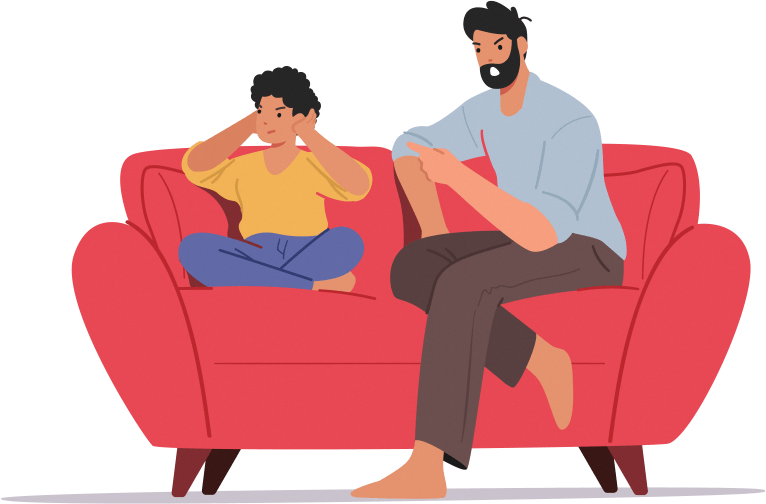

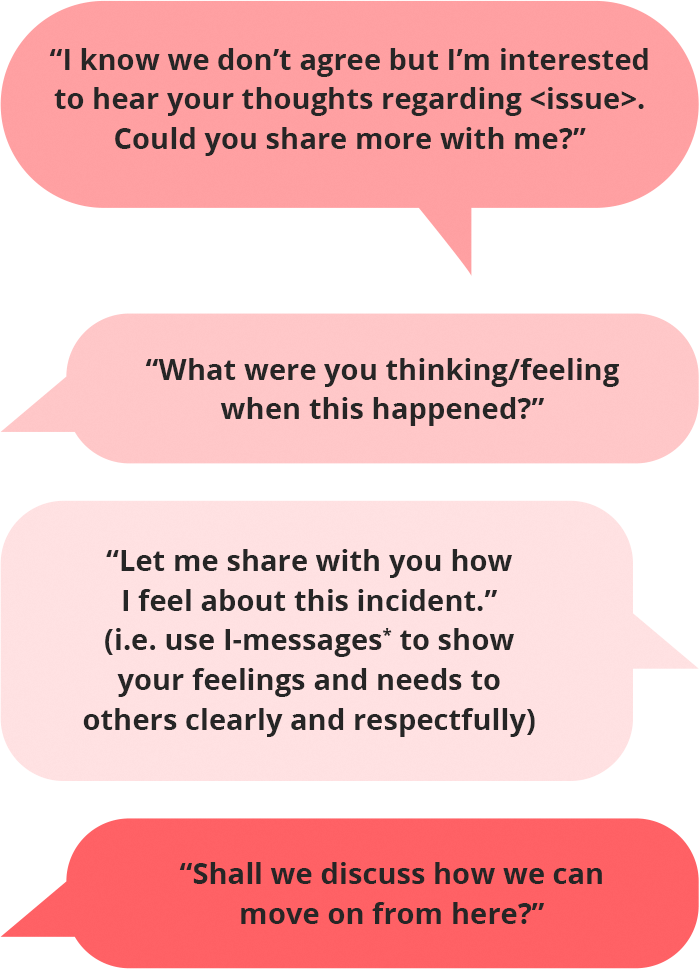
-
Remember to give your child some time to process their thoughts and feelings before they share their thoughts with you
-
To end the conversation, assure them you love them by telling them so or giving them a hug
*At primary 3, students learn about I-Messages in school during their Character and Citizenship Education (Form Teacher Guidance Period) lessons. I-Messages are used to communicate one's feelings and needs to others clearly and respectfully.
For example, “I felt upset <feeling> when you posted that photograph of me making a funny face together with a caption that made me look silly <upsetting action done by others>. I would like it if you remove the photo <suggested solution>, please.”
For example,
“I felt upset <feeling> when you posted that photograph of me making a funny face together with a caption that made me look silly <upsetting action done by others>. I would like it if you remove the photo <suggested solution>, please.”
-
Acknowledge it and apologise to them rather than brushing it off
-
This will help them understand there will be times when everyone makes mistakes, including adults
-
More importantly, they will learn it is important to take responsibility for one’s actions
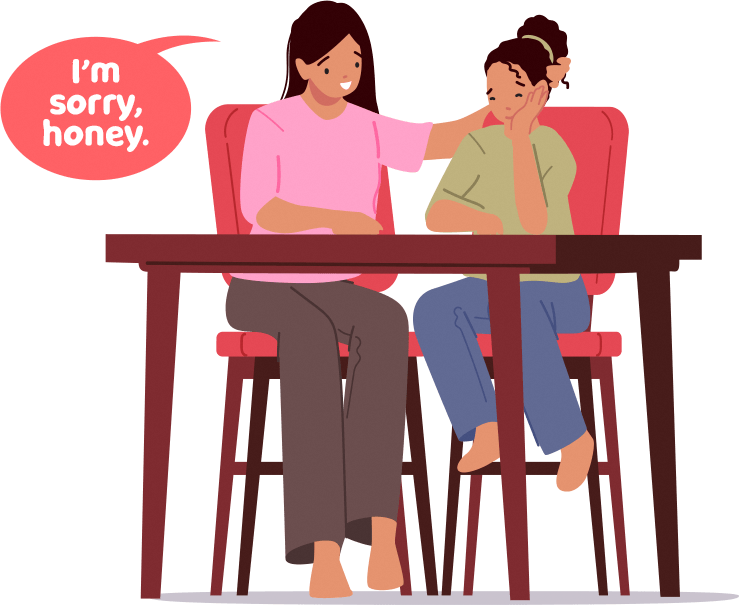
By role-modelling these behaviours yourself, you will not only earn respect from your child but also effectively teach them how to behave and have respectful conversations with others.
Other ways you can support and encourage your child to develop these skills include:
-
Notice and point out whenever they have shown respect
-
For example, when they waited for you to finish speaking to someone before asking you to help them in some other matters
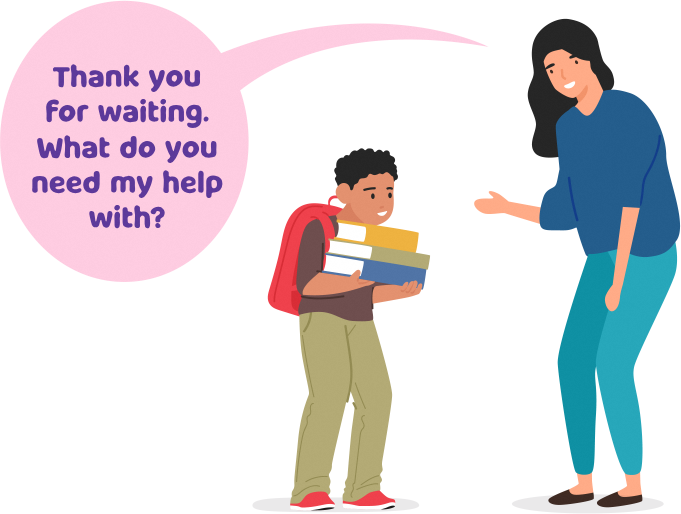
-
It is important to let them know that they should look at the speaker when being spoken to
-
Similarly, they should say “please” when making a request and “thank you” to express gratitude

-
Show them how to understand things from someone else’s perspective and come to a compromise when having a conflict with others
-
For example, when communicating about different perspectives with your child, you can say:
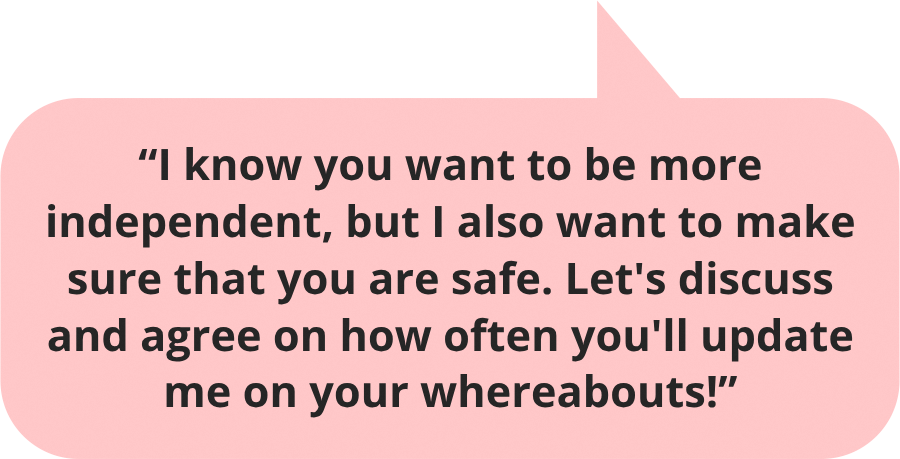
-
This way, you can show your child that aggression is not necessary to get what they want

-
Text messages cannot accurately convey tone, emotions, and body language
-
Depending on how the receiver perceives the message, the emotions behind it can be easily misinterpreted
-
To prevent this, avoid using fully capitalised or bolded words when sending text messages to your child, even when you are upset with their behaviour
-
Communicate your intention to support and be there for them and politely use words like “please” and “thank you”



